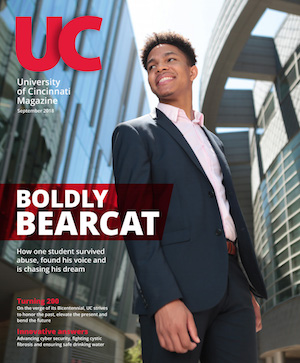Distinguished Teaching Professor
►Marc M. Cahay
Professor, Electrical & Computer Engineering
College of Engineering and Applied Science
Marc Cahay, PhD, is a dedicated and highly professional pedagogue who demonstrates that excellent teaching takes place not only in the classroom, but also in a variety of other venues.
His engaging teaching method uses timely quizzes to gauge the students' grasp of materials on a continuous basis, and he often begins classes with a series of four problems that students work out on the board. He has graduated 25 Master's and eight PhD students and served on the thesis committees of 108 students, contributing directly and indirectly to the learning of many undergraduate and graduate students worldwide.
Co-author of Introduction to Spintronics – a textbook and software package explaining the quantum mechanics concept of spin in solid-state systems, Cahay has had significant influence on his peers and researchers in industry, academia, and government labs. He has published 124 papers in archival journals.
He was elected a fellow of the UC Graduate School (2001), the Institute of Electrical and Electronics Engineers (2007) and the Electrochemical Society (2007). He has consistently received teaching awards for excellence, including the Eta Kappa Nu Outstanding Professor of the Year Award (2002 and 2009) from his department, and most recently, the Master Educator Award (2009) from the College of Engineering and Applied Science.

 Past Issues
Past Issues